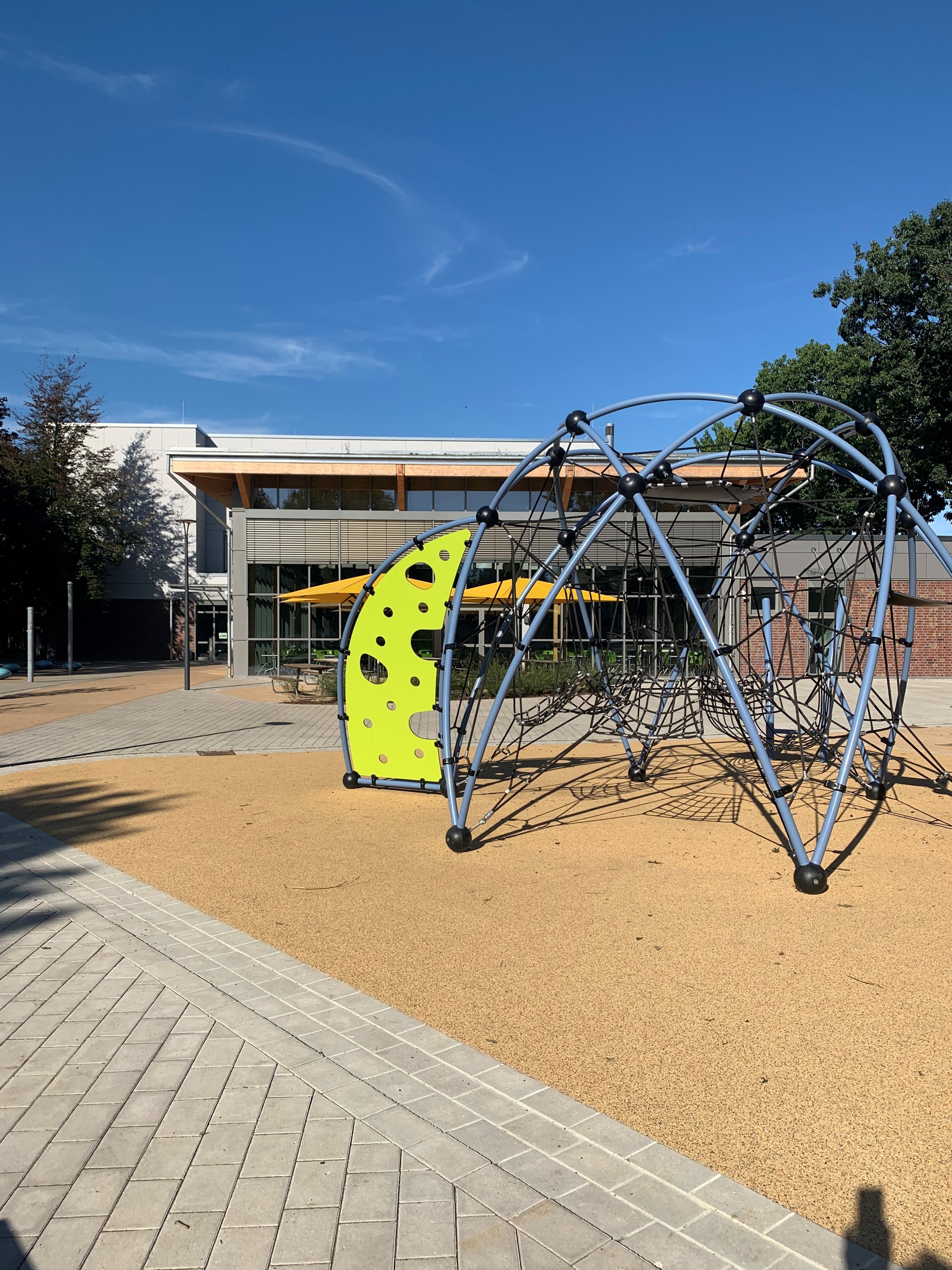Question 01:
Is there a difference in the upper grades between high schools and comprehensive schools?
No. Both types of school teach according to the prescribed curricula of the upper secondary school. At the end of the upper school, all students take the central school-leaving examination.
At the comprehensive school, great attention is paid to your individual learning levels. The differentiated work practiced at comprehensive schools in the lower secondary level, which is designed to provide support, encouragement and guidance, is also continued in the upper secondary level. The comprehensive school thus offers a "softer" transition and usually has low dropout rates.
Question 02:
What conditions do I have to fulfill for admission to the introductory phase (grade 11)?
Above-average performance in obtaining the intermediate school-leaving certificate (Fachoberschulreife) entitles the student to attend the gymnasiale Oberstufe (at the Gymnasium, Gesamtschule and vocational Gymnasien). It is awarded if the performance at the end of grade 10 is at least satisfactory in all subjects. A sufficient performance in one major subject (German, mathematics, English) can be compensated by a good performance in another major subject. A maximum of three adequate performances in another subject or two adequate and one deficient performance may be compensated by an equal number of good performances in the other subjects. Each subject may be used for compensation only once.
Question 03:
What is the structure of the gymnasiale Oberstufe?
The upper level of the Gymnasium is the same at all Gymnasiums and comprehensive schools. It comprises a total of three years and begins with the one-year introductory phase (Gymnasium: grade 10; Gesamtschule: grade 11). This is followed by the two-year qualification phase. The maximum length of stay in the gymnasiale Oberstufe is four years. This also applies to vocational high schools.
Question 04:
What is the difference between the introductory phase and the qualification phase?
In the introductory phase, students are familiarized with the content and methodological requirements of the Gymnasiale Oberstufe. Here they acquire all the content-related and methodological prerequisites to meet the requirements of the qualification phase. At the end of the introductory phase, students are transferred to the qualification phase, in which they qualify for the Abitur examination. There is only a transfer from the introductory phase to the qualification phase, not between the two school years of the qualification phase. With the transfer at the end of the introductory phase, the students acquire the intermediate school leaving certificate in the educational program of the Gymnasium. The performance achieved in the qualification phase is included in the overall assessment for the Abitur.
Question 05:
What types of courses are there and how do basic and advanced courses differ?
In the introductory phase, instruction is organized in basic courses, and in the two years of the qualification phase in basic courses (basic level) and in advanced courses (advanced level). In addition, in all grades, two-hour advanced courses can be taken, especially in German, mathematics, the continued foreign languages and, if necessary, other subjects. In the qualification phase, two or three-hour project courses are also offered.
The counseling of a student's individual school career with regard to the compulsory and optional subjects to be taken takes place in the school by the counseling teacher.
Question 06:
What are "profiles"?
As part of your school career, you will choose either a mathematics/science or a foreign language focus in the upper school by choosing a major subject.
Question 07:
When are the advanced courses chosen?
At the end of the introductory phase, students are required to choose their two advanced courses for the two years of the qualification phase.
Question 08:
Which advanced courses can be chosen?
The first advanced course subject must be a foreign language continued from lower secondary school or mathematics or a natural science or German. The second advanced course subject can be chosen freely within the framework of the requirements and the possibilities of the school.
Question 09:
What is the weekly time frame for the gymnasiale Oberstufe?
A total of at least 102 hours per week must be achieved in the three years of the Gymnasiale Oberstufe. Within the introductory phase and within the qualification phase, at least 34 hours per week on average must be taken. An offsetting of the number of weekly lessons between the introductory and the qualification phase is not permitted, but is possible within the two years of the qualification phase.
Question 10:
When is the academic part of the Fachhochschulreife acquired?
At Gymnasien, Gesamtschulen and Weiterbildungskollegs, the academic part of the Fachhochschulreife is acquired at the earliest after two ascending semesters of the qualification phase. In conjunction with a one-year guided internship or vocational training, they achieve the authorization to study at a university of applied sciences.
More detailed info:
https://www.schulministerium.nrw.de/docs/Schulsystem/Schulformen/Gymnasium/Sek-II/FAQ-Oberstufe/FAQ11-Abschluesse/Merkblatt_zum_Erwerb_der_Fachhochschulreife.pdf
Question 11:
How can I plan my personal high school career?
Advice on a student's individual school career is provided at school by the guidance teacher. In addition, the course selection for the EF can be simulated. To do this, visit the page Einstieg - Anmeldung Oberstufe.
